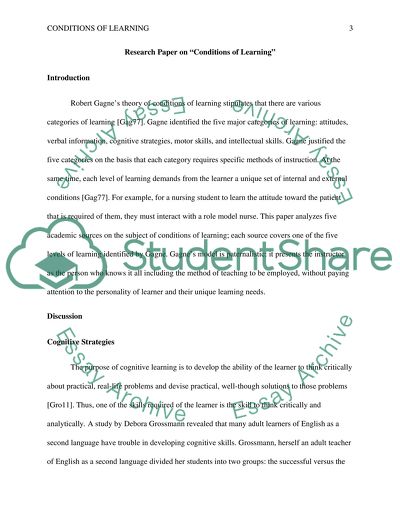Cite this document
(“Conditions of Learning Research Paper Example | Topics and Well Written Essays - 1250 words”, n.d.)
Retrieved from https://studentshare.org/psychology/1680744-conditions-of-learning
Retrieved from https://studentshare.org/psychology/1680744-conditions-of-learning
(Conditions of Learning Research Paper Example | Topics and Well Written Essays - 1250 Words)
https://studentshare.org/psychology/1680744-conditions-of-learning.
https://studentshare.org/psychology/1680744-conditions-of-learning.
“Conditions of Learning Research Paper Example | Topics and Well Written Essays - 1250 Words”, n.d. https://studentshare.org/psychology/1680744-conditions-of-learning.


